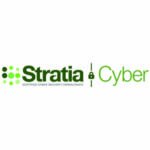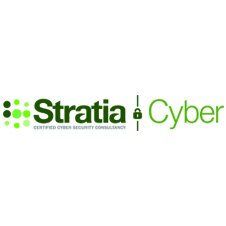Stratia Cyber: What is the hybrid working model?
Good question. We really liked this definition ‘a workplace that is a moveable feast for normal and power users alike’ – thanks to the folks at eweek.com.
Many of the global population have had a taste of freedom to work from anywhere on any device. In response to newfound demand for so much flexibility, it’s now someone’s job to ensure those devices are safe, reliable and efficient.
Hybrid working is also based on the idea that peoples’ physical presence in the office isn’t always necessary for work to be carried out. It’s hard to argue with this, and no doubt your organisation is in the throes of designating certain days for in-office work, and other days for remote work that requires individual focus.
How are companies responding so far?
According to reports, 76% of companies adopted cloud services faster than they had planned in the last 12 months . Three quarters of all organisations were forced to respond to the pandemic with sudden acceleration of digital transformation, and opportunities for breach have simply multiplied. To name just two, most notably in the legal and healthcare sectors, – however reports exposed a clear disconnect between law firms’ perception of cyber risk, desire to adopt technology and curious reports that the number of data leaks remain the same since before the COVID-19 pandemic despite a more dispersed way of working.
“Over the last year this has had to have been thought about very rapidly, and healthcare trusts have been forced to look at MDM (mobile device management) solutions, and of course the cyber security elements associated with that.”
Dr Sandeep Bansal, CEO & Founder
KPMG insights on Redesigning the Future of Work describes our New Reality as an opportunity – offering employees greater flexibility is seen as a positive – but also a challenge – firms have concerns over diminished team building and a dilution of culture due to decentralised working.
I’m inclined to agree. People are much more effective if they are comfortable in their workspace, wherever that happens to be. Hybrid working models maintain social distancing on more individual terms, without disrupting connections.
However, with the hybrid workforce comes added intricacy for security and IT operations. In many scenarios, workers are moving between secure office environments with enterprise network monitoring, firewalls, event and data analytics, to vulnerable home networks that might have rogue devices, weak passwords or outdated equipment. And unlike the pandemic, there’s no end to this in sight.
What are the priorities?
i. Remote working policies rise to the challenge
Earlier this year, the Legal IT Landscapes survey indicated firms’ eagerness to demonstrate readiness for remote working to continue, comfortable with migrating to the cloud, implementing automation, and upgrading their tech in general. In the legal sector specifically, confidence was high that changes to IT infrastructure would directly enable growth and boost competitive advantage.
As firms opt for a more permanent split between home-based and office working, recognising the responsibility to provide adequate protection of information assets must meet the pace at which the legal sector is exploring new environments in pursuit of greater market share. In the full edition of SC Insights| Dispersed by design, we expand on the value of people and process in successfully navigating the transition to hybrid. Experience tells us that new infrastructure and devices alone rarely serve to strengthen reputation.
Capitalise on existing cyber security policies to ensure remote and hybrid working can be sustained long-term without increasing cyber risk.
Larger and the most switched-on businesses will be making the most of this rare opportunity as businesses consider how they can become secure by design. Now is the time to leverage appetite to design safe practices so that looking after the health of the business becomes easier. If you want to be everlasting, and you want to be easily able to adapt to new security situations, you need to make decisions now that are right for your specific organisation.
ii. Trust is key when you’re dispersed by design
This year Stratia Cyber celebrates 10 years in business as a dispersed team. Long before the pandemic, our company culture continued to grow and strengthen very organically despite having always operated as a remote team. In-person interactions will always be fundamental to some elements of running a business, but at its core, trust is the key to success for our NCSC-accredited cyber security consultancy. Trust is part of our mission; trust in what we do to make safe environments in which businesses can thrive, we have no option to fail because our clients are trusting us with their ability to survive. But it’s also distinct from our values and in many ways also separate from our mission. And in our experience, trusting our people has been repaid with good performance. This kind of culture is absolutely responsible for our decade of growth.
Medic Bleep is a technology-led startup and implemented a remote working policy from the outset. Our relationship began pre-Covid19. Founder and CEO, Dr Sandeep Bansal, contributed his perspectives to our commemorative and inaugural edition of SC Insights, launched in May:
“We’re a critical system servicing hospitals and healthcare, so our team has always needed to react very fast and to be able to access the servers and the technology from the engineering side, from wherever they happened to be.
“Stratia Cyber has helped us to understand where our gaps were, and what we can do to build up the existing security measures we do have in place. On the product side, they’ve helped us with penetration testing, and reassessed us once we’ve made some changes. The assessment process is a continual cycle.”
Get support specific to your needs
Depending on the type and size of the company, hybrid working can just be business as usual. However for some, it will be transformational. Our mission is to make cyber security more comfortable, and sharing knowledge is critical in our efforts to help make the world a safe place to do business. So I urge you now to take advantage of our collective experience as a remote operation, our platinum standard approach to cyber security, as well as our client’s own experiences to facilitate and simplify the transition and the transformation your organisation will face next.



